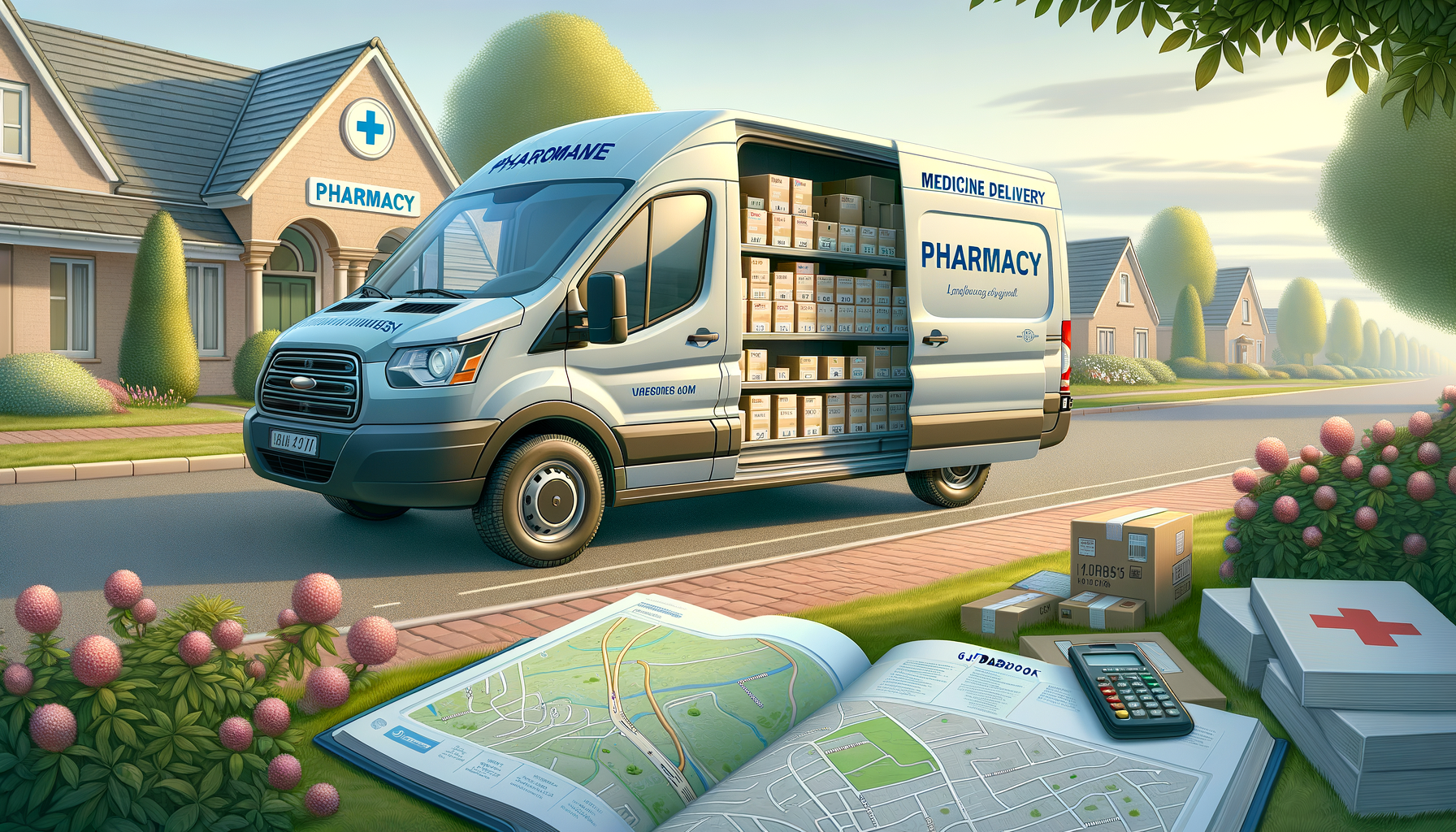
How to Become a Medicine Delivery Driver
Understanding the Role of Medicine Delivery Drivers
Medicine delivery drivers are the unsung heroes in the healthcare supply chain, ensuring that essential medications reach patients timely and safely. This role requires a blend of logistical skills, customer service, and an understanding of pharmaceutical regulations. As healthcare systems increasingly rely on home delivery services, the demand for skilled medicine delivery drivers is on the rise.
One of the primary responsibilities of a medicine delivery driver is to handle medications with care. This includes understanding the specific storage requirements for different types of medicine, such as temperature-sensitive drugs. Drivers must ensure that these conditions are maintained during transportation to prevent any compromise in drug efficacy.
In addition to logistics, medicine delivery drivers are often the face of the pharmacy or healthcare provider to the patient. This means they must possess strong interpersonal skills to provide excellent customer service. They are responsible for verifying patient identity, obtaining necessary signatures, and sometimes even explaining basic medication instructions if required.
In summary, the role of a medicine delivery driver is multifaceted, requiring attention to detail, empathy, and a commitment to patient safety. This makes it a critical component of the healthcare delivery system.
Essential Skills and Qualifications
To excel as a medicine delivery driver, certain skills and qualifications are essential. Firstly, a valid driver’s license and a clean driving record are mandatory. Many employers also prefer candidates with previous experience in delivery or logistics, although this is not always a strict requirement.
Beyond driving skills, medicine delivery drivers must have a keen attention to detail. This is crucial when handling prescriptions, as errors can have serious health implications. Drivers must be able to read and understand prescription labels and ensure that the correct medication is delivered to the right patient.
Good organizational skills are also important. Drivers often manage multiple deliveries within a tight schedule, so the ability to plan routes efficiently is vital. This not only helps in meeting delivery deadlines but also in minimizing travel time and fuel costs.
Finally, strong communication skills are necessary. Drivers need to interact with patients, pharmacists, and healthcare providers regularly. Being able to communicate clearly and professionally enhances the service experience and ensures that any issues are resolved quickly.
Safety and Compliance in Medicine Delivery
Safety and compliance are paramount in the field of medicine delivery. Drivers must adhere to strict regulations set by health authorities to ensure the safe handling and transportation of medications. This includes understanding the legal requirements for transporting controlled substances, which often involve additional documentation and security measures.
Furthermore, drivers must be trained in handling emergencies, such as vehicle breakdowns or adverse weather conditions, which could delay deliveries. They should have a contingency plan in place to ensure that patients receive their medications without significant delays.
Compliance also extends to maintaining the confidentiality of patient information. Medicine delivery drivers must be familiar with privacy laws and ensure that sensitive information is protected during the delivery process. This includes securing delivery manifests and ensuring that any electronic devices used for delivery tracking are password-protected.
By adhering to safety and compliance standards, medicine delivery drivers play a crucial role in maintaining the integrity of the healthcare system and ensuring patient trust.
The Impact of Technology on Medicine Delivery
Technology has significantly transformed the landscape of medicine delivery, enhancing efficiency and reliability. GPS navigation systems enable drivers to plan optimal routes, reducing delivery times and improving fuel efficiency. This is particularly beneficial in urban areas where traffic congestion can be a major challenge.
Moreover, mobile applications and software platforms allow for real-time tracking of deliveries, providing patients with updates on their medication’s arrival time. This transparency enhances customer satisfaction and builds trust in the delivery service.
Technology also plays a role in inventory management. Automated systems can alert drivers and pharmacies when medication stocks are low, ensuring that patients do not experience delays due to inventory shortages. This proactive approach helps in maintaining a seamless supply chain.
In addition, digital signatures and electronic records streamline the delivery process, reducing paperwork and minimizing the risk of errors. This not only speeds up the delivery process but also ensures that records are accurate and easily accessible for future reference.
Overall, technology is a key enabler in the evolution of medicine delivery, making it more efficient, reliable, and customer-friendly.
Challenges and Opportunities in Medicine Delivery
While the role of medicine delivery drivers is rewarding, it comes with its set of challenges. One of the primary challenges is navigating traffic and geographical barriers, especially in rural areas where roads may be less accessible. Drivers must be adept at problem-solving and adaptable to changing circumstances.
Another challenge is managing the physical demands of the job. Drivers often spend long hours on the road and may need to lift heavy packages, requiring good physical fitness and stamina. Employers may provide training and support to help drivers manage these demands effectively.
Despite these challenges, there are numerous opportunities in the field of medicine delivery. With the growing trend of online pharmacies and home healthcare services, the demand for skilled delivery drivers is increasing. This provides job security and opportunities for career advancement.
Moreover, drivers who excel in their roles may have the opportunity to transition into supervisory or managerial positions within logistics companies or healthcare organizations. This career progression can lead to increased responsibilities and higher earning potential.
In conclusion, while the role of a medicine delivery driver may present challenges, it also offers a fulfilling career path with ample opportunities for growth and development.


